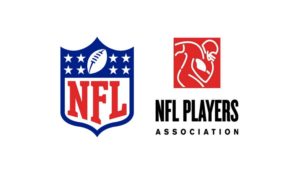Pittsburgh Steelers cornerback Cortez Allen will be entering the final year of his rookie contract in 2014 and while the team will likely work on trying to get him extended during the offseason, the Citadel product is due a raise regardless, as he qualified for a base salary escalator due to his playing time in his first three years in the league.
Here is what the CBA says about the Proven Performance Escalator:
Section 4. Proven Performance Escalator:
(a) The Proven Performance Escalator is mandatory for Rookies drafted in the third through seventh rounds. Rookies drafted in the first or second rounds and Undrafted Rookies are not eligible to earn the Proven Performance Escalator.
(b) The Proven Performance Escalator is a non-negotiable amount by which an eligible player’s year-four Paragraph 5 Salary may escalate provided the player achieves at least one of the two qualifiers set forth in Subsection (c) below. The Proven Performance Escalator shall be deemed a part of every Rookie Contract of a player selected in the third through seventh round by virtue of this Agreement and may not be separately attached to such Rookie Contract.
(c) Qualifiers. An eligible player will qualify for the Proven Performance Escalator in his fourth League Year if: (1) he participated in a minimum of 35% of his Club’s offensive or defensive plays in any two of his previous three regular seasons; or (2) he participated in a “cumulative average” of at least 35% of his Club’s offensive or defensive plays over his previous three regular seasons. “Cumulative average” means the sum of the total number of offensive or defensive plays in which the player participated over the applicable seasons, divided by the sum of the Club’s offensive or defensive plays during the same seasons. (By way of example, if a player participates in 600 of the Club’s 1,000 offensive plays in his first season, 290 of the Club’s 1,000 plays in his second season, and 310 of the Club’s 1,000 plays in his third season for a total of 1,200 plays out of a possible 3,000, the cumulative average would equal 40%).
(d) Amount. The Proven Performance Escalator shall equal the difference between (i) the amount of the Restricted Free Agent Qualifying Offer for a Right of First Refusal Only as set forth in, or as calculated in accordance with, Article 9 for the League Year in such player’s fourth season and (ii) the player’s year-four Rookie Salary (excluding signing bonus and amounts treated as signing bonus). The resulting amount shall be added to the stated amount of the player’s year-four Paragraph 5 Salary. By way of example, if a rookie drafted in round three of the 2011 Draft has a year-four Rookie Salary of $1,000,000 (consisting of $700,000 in Paragraph 5 Salary, $150,000 in signing bonus proration, $100,000 in an incentive, and a $50,000 roster bonus), and the 2014 Restricted Free Agent Qualifying Offer for a Right of First Refusal Only equals $1,400,000, then, upon achieving the qualifier, the player’s stated Paragraph 5 Salary ($700,000) shall increase by $550,000 (i.e., $1,400,000 minus (1) the $700,000 Paragraph 5 Salary, (2) the $100,000 incentive, and (3) the $50,000 roster bonus). As a result, the player’s total earnable Salary in the 2014 League Year (minus his signing bonus proration) shall be $1,400,000, consisting of the player’s $1,250 ,000 Paragraph 5 Salary (as escalated), his $100,000 incentive, and his $50,000 roster bonus.
(e) The amount by which a player’s Paragraph 5 Salary may increase pursuant to this section shall not be considered Rookie Salary and shall not count toward the Total Rookie Compensation Pool, the Club’s Total Rookie Allocation, or the 25% Increase Rule.
(f) No portion of the Proven Performance Escalator may be guaranteed for skill, football-related injury or Salary Cap-related contract termination either before or after the player has achieved the qualifiers for the Escalator.
In short, Allen played more than 35% snaps on defense in each of the last two seasons, so he easily qualifies for the escalator. Allen’s rookie contract did not include any roster or workout bonuses, so that means his 2014 base salary will increase from the scheduled amount of $645,000 to $1.389 million, which is what the restricted right of first refusal tender is expected to be based on the expected 5% increase over 2013.
When Allen was signed as a rookie, he received a $391,500 signing bonus, so when you add his 2014 proration amount of $97,875 to his new $1.389 million base salary, his scheduled 2014 cap hit will be $1,486,875.
Now, I fully expect that the two sides will get a new deal done during the offseason and as a result, Allen’s, 2014 base salary will more than likely be adjusted back down close to $645,000 number. His new signing bonus will then be prorated out over the course of the deal with five years proration being the max allowed. For example, if Allen winds up getting a four-year extension and a $5 million signing bonus, his new 2014 cap number should be able to be as low as $1.645 million.
If for some reason the Allen is not extended, he will become an unrestricted free agent in 2014 and the Steelers will then have to decide whether or not to use the franchise tag on him in order to prevent him from hitting free agency.
If you are already looking ahead to next offseason, there’s a good chance that tackle Kelvin Beachum will be eligible for this same escalator, so keep that in the back of your head.
(Thanks to Luke for sending me a reminder about this.)







